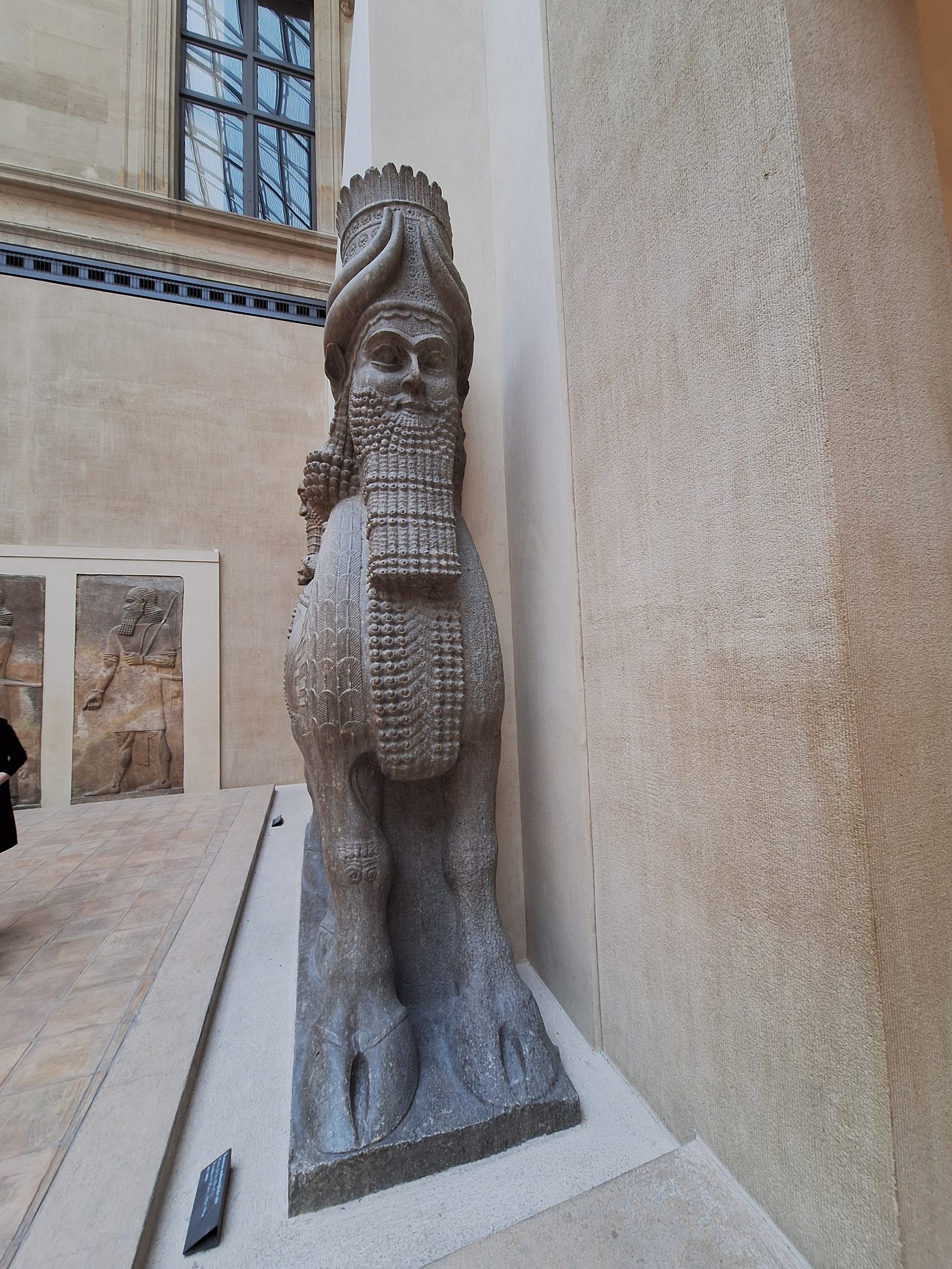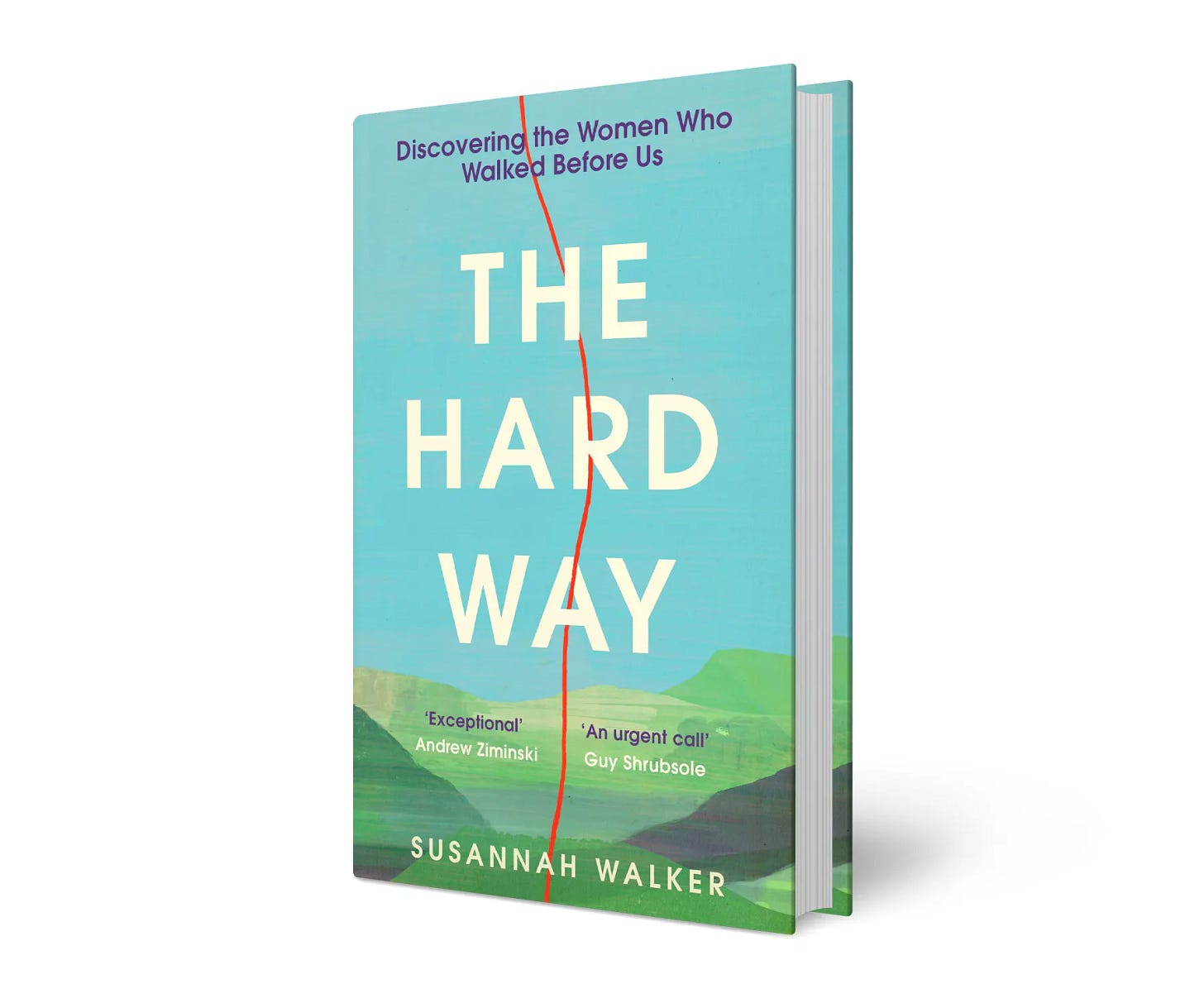Change Everything No 23: Of emperors and emails, from Nineveh to Westminster
Governments, any time and any place, face a basic problem. How do we make this damn system work?
Book news
Looking forward to a wide geographical range of Change Everything book events next month - Diss in Suffolk, Wrecking Ball Music and Books in Hull, Manchester (with the Trouble Club and the (perfectly named!) Rethink Rebuild Society at the Syrian Community Centre), and hopefully TBC in Durham and Bristol.
Learning from Augustus and Ashurbanipal
One month after the election that saw the first change of government in the UK in 14 years, the new Labour government is facing - self-evidently - a mammoth task. But this is not an email about the current outbreak of crime on our streets, the attacks on police or the arson and looting, but rather a historically based reflection on how a government operates, the challenges and the difficulties of regime change, how many problems are shared across ages and places. It is prompted by the reading of Mary Beard’s predictably brilliant Emperor of Rome: Ruling the Ancient Roman World.
Reviews like the one linked to above have focused on her analysis of wild tales - did Elagabalus really drown dinners in rose petals (as depicted by the 19th-century artists Sir Lawrence Alma-Tadema below? Almost certainly not, although he might have been the inventor, or at least first recorded user, of the whoopee cushion. But as Beard says, the fact that such stories could even be put forward tells us a lot about how the public perceived the power of emperors.
Reading it, as I did, while hacking my way through a large email pile-up, it was the chapter on managing correspondence (yes, reallly, Beard manages to make even this fascinating) that really struck a chord. (And if you’re still waiting for an email back, sorry. The problem with responding to emails is that people then immediately write back…. and you may end the day more behind than you started.)
Back in ancient Rome, you had to either post your request to the emperor, or have contact with him in person. A task that mattered a lot to some people; Beard reports one man from Ephesus in modern Turkey (wonderful archaeological site, BTW, should you be able to see it) who eventually managed to see Septimus Severus and Caracalla in Britain. (I can imagine the kind of character he was.) But more commonly….
“There were also the little pieces of papyrus (libelli in Latin) that were pressed into his hands, when he presided over public ‘greetings’ at the palace, or as he was carried through the streets, or showed up in some provisional town. Each … contained a request of some sort, and a brief imperial response was written underneath and then pinned up on a public noticeboard for the hopeful petitioner to inspect, before getting a witnessed copy and taking it home. … Just occasionally a hint of the likely response came straight away. In a fictional version of one such encounter, written by Philostratus…, Vespasian is pictured receiving one of these requests and immediately reading it aloud to the assembled company. To the embarrassment of the petitioner, it was a blatant pleas for cash for himself and his friends. The implication is that a firm ‘no’ was on its way.” (p. 221-222)
Would that the last government had taken the same approach in so many areas of public life and particularly Covid procurement.
Which is a reminder of just what a mess the current UK government has taken over. The last two or three years I saw up close and first hand a chaotic, out-of-ideas administration that was performing the act of government, saying “hey look, I’ve pulled a lever”, even though it was obvious there was nothing attached to it. Announcements were made with the clear understanding that delivery would not be their problem. (See the childcare mess.)
Beard doesn’t get into the problems of a Galba trying to pick up after Nero, or Severus Alexander after Elagabalus. (Have to say there’s a fun piece to be written on “which Roman emperor are Cameron, May, Johnson, Truss and Sunak best paired with?”).
But she does have thoughts on what is a new government (or emperor) to do? Beard notes in ancient Rome “there often seems to have been a concerted campaign of ‘spin’, devoted to making him seem the obvious, the inevitable, or - best of all - the divinely chosen man for the job.” (p. 63) Yep, can see some similarities there. (Although our political system has some way to go to seeing multiple options rather than just one unpopular one.)
Who decided who was taking over in Rome? Beard notes that there was no male primogeniture for the emperor (or in family inheritance). “It was in principle much easier to bypass the unsuitable or the unpopular. But it came at an enormous cost: a potential fight every time power changed hands.” (p. 62) Not so much the UK there, but echoes now in the dangerous situation we are likely to see in the next US election - see the rhetoric of JD Vance.
But I’ve probably made the book sound a heavy, and it certainly isn’t. There’s also lots of anecdotes worthy of a Suetonius (hard to do Roman imperial history without it really) - and reminders that the same kind of problems just keep reoccuring. Beard reflects on a herpes outbreak that forced the emperor to ban kissing at court. (Roman men of the elite then used kissing as a standard greeting, she hotes.)
Although Beard dismisses briskly some of the more lurid accounts, such as that of Livia smearing Augustus’ favourite figs with poison to make way for her son Tiberius. She says: “Who knows? In the ancient world it was impossible to distinguish a nasty case of appendicitis from a nasty case of poisoning, or the effects of doctored figs from the effects of dysentery”. (p. 59) Personally, I’d put it more strongly than that - if you apply Ockham’s razor: a man of 75 years of age dies, I’d assume natural causes rather than a harebrained-sounding poisoning scheme, unless there’s very strong evidence to the contrary. As many feminist historians have noted, the kind of gendered abuse elite women have suffered through the ages comes down to wearily familiar tropes like “poisoner!”.
I found the juxtaposition of the Roman Empire and the current UK irresitistible this week, but the issues that Beard addresses are the same that would encountered by any nation or empire, ancient or modern. How can we make this damned system work? Beard touches on this issue when she notes how comparatively lightly the Roman Empire was governed, with only one-twentieth the number (proportionately) of senior administrators as the Chinese employed (p. 233).
I’d love to see a comparative study of say, the Assyrian empire against the Roman, the similarities and difference in how they managed to keep the whole political show on the road. Contrast the long reigns and building efforts of Ashurbanipal and Augustus, or Saragon II and Valerian - both losing their lives in foreign wars. What’s similar and different about their successes and failures? Maybe there’d even be something useful for our new incumbents in Westminster to learn.
I pick out Assyrians, because I’ve been reading Assyria: The Rise and Fall of the World’s First Empire by Eckart Frahm, revisiting a subject that first fascinated me when I saw Iamassu (winged bulls) as an archaeology-obsessed pre-teen. Haven’t really read back into the subject since, and I’ve found this book (from 2023) a pretty good re-introduction (as this review suggests). And have a lot of sympathy with the author’s claim that that world history “does not begin with the Greeks or the Romans — it begins with Assyria”.
And there’s also a strong claim that democracy starts not with the Greeks but the Old Assyrian empire, whose governance had at least a democratic element. (Something the next book, which I’m working on this summer, is going to come back to.) And not just because I love Assyrian art! (Pictures from the Lourvre)
Picks of the week
Reading
Australian Second Wave feminists often commented on the male-exclusive nature of Australian identity stereotypes, the the lone stockMAN on his horse (white of course, although in reality many such workers were Aboriginal), the surfer mastering the waves. My fellow Unbound author Susannah Walker makes similar observations in The Hard Way: Discovering the Women Who Walked Before Us.
She notes that in the case of many of our most celebrated (overwhelmingly male) nature writers:
“Men, it seems, find it so much easier to walk away from the domestic noise. Often, like Edward Thomas, this is what they are fleeing in the first place. His modern successors are not much different. So often a book will begin with a man walking out of the door with scarcely a mention of the family left behind him. Only as the narrative goes on does a picture form, of the crumbling house in need of renovation, the garden which has to be tamed, never mind the children who have to be fed, taken to school, have their uniform washed, be driven to and from clubs and matches and friends’ houses. Someone has to remain at home, but this work goes on invisibly while the gentle author is at libery to find himself in the landscape, away from the sapping effects of home and womankind.” (p. 59)
Read it, and you’ll never think of John Betjeman in the same way again for his treatment of wife Penelope, and you’re likely to want to find more about the life of Mary Butts and Ella and Dora Noyes, who don’t even have a Wikipedia entry, which they certainly deserve.
It’s far from all about gender though. Walker also very much makes the case for genunine, ancient, long -distance, something which the science - see the Amesbury archer - strongly supports.
Listening
Genocide, racism, viscious repression, forced labour - how the North of America, before the Civil War invented a prison built to make a profit, and then propogated the model. These were heinously abusive conditions - walking in lockstep, enforced not just silence but being forced to not look at another person - through the fate of a teenage boy, ironically called William Freeman, who didn’t submit but fought the whole way, on the New Books Network Dr. Robin Bernstein talks about her new book. Is it any wonder the USA is such a mess, given so much toxicity in its origins?
Thinking
Anyone who’s already read Change Everything, the book, will know that the first chapter, and a foundation of the changes it proposes, is universal basic income. Initial reports of the results of a US trial, under the auspices of Sam Altman and Open Research are emerging from some of the usual critics but I am, no surprise, going with the analysis of Scott Santens, longtime UBI champion, who concludes: “only further demonstrate that what's at stake here is real freedom and the perceived danger it poses to those who benefit from the widespread lack of that freedom”. As I put it, UBI means it is neither a boss nor a state that decides how people spend their time, energy and talents, but the people themselves - the ultimate democracy.
Researching
Whow - an amazing 520 million-year-old fossil of Youti yuanshi, ancestral to insects and crabs, has shown that bodily sophistication in brain and nerves was far greater far earlier than had been thought, as the Cambrian Explosion took off. And all from a specimen the size of a poppy seed.
Almost the end
From the Guardian
Finally some good news. Among the less-publicised people in the US-Russia prisoner swap last week was the brave artist Aleksandra Skochilenko, who was jailed for seven years for exchanging labels in a supermarket for honest accounts of what was happening in Russia’s attack on Ukraine. Always great to celebrate women in politics and women in art, particularly when they go together.
What did you think?
You can also find me on Instagram, Facebook, LinkedIn, TikTok and X.






